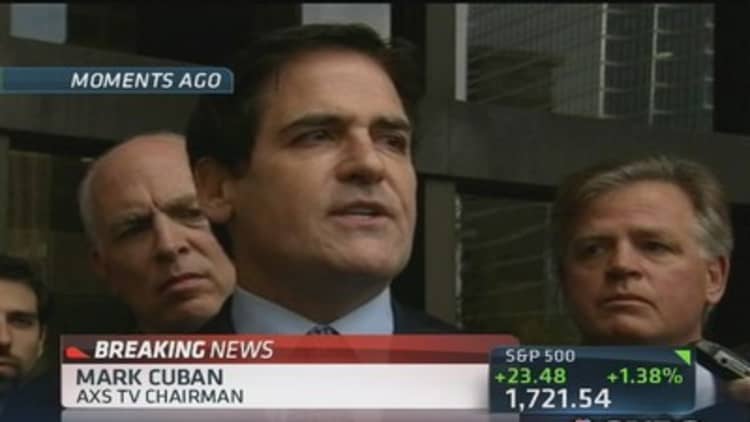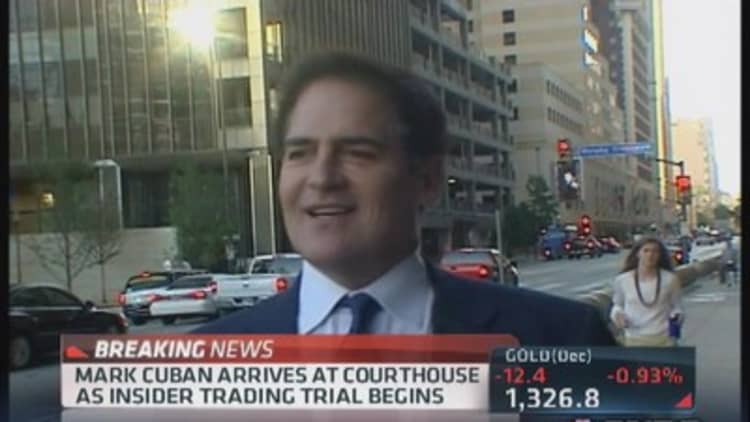
Mark Cuban, the billionaire owner of the NBA's Dallas Mavericks, was acquitted by a federal jury in Dallas of charges that he committed insider trading.
Prosecutors had accused Cuban of avoiding more than $750,000 in losses by illegally selling 600,000 shares of Canadian search engine company Mamma.com in June of 2004.
The jury in federal court found that the SEC failed to prove several key elements of its case, including that Cuban traded on nonpublic information.
The nine-member jury deliberated for about four hours.
"We respect the jury's decision," said SEC spokesman John Nester. "While the verdict in this particular case is not the one we sought, it will not deter us from bringing and trying cases where we believe defendants have violated the federal securities laws."
According to the SEC's case, Cuban traded shares on confidential information he received from Mamma.com CEO Guy Faure that detailed a future PIPE deal involving the company. Such PIPE transactions, which stand for "private investments in public equities," tend to hurt share prices.
(More from CNBC: Mark Cuban plays defense in stock-dumping trial)
Faure testified that Cuban agreed to a confidential discussion regarding the PIPE deal over a phone call just prior to Cuban selling his 6 percent stake; however, Cuban denies ever having that conversation and furthermore insisted in his testimony that he would never enter into such an agreement without written documentation.

While the SEC's case rested heavily on the exclusivity of the information concerning the company's PIPE agreement prior to June 2004, the defense argued that the pending PIPE transaction was in fact public and could in no way be considered confidential information.
To support its argument, the defense pointed to an SEC filing it says was "available to anyone in the world" and submitted by Mamma.com in March 2004, more than three months prior to the June 2004 sale in question. According to the defense, the filling discussed the possibility of the company entering into a PIPE agreement, which therefore negates the prosecution's claims the information was confidential.
(More from CNBC: 'I rarely invest in stocks,' Cuban says)
Additionally, the defense argued further that the 1,932 percent trading volume spike of Mamma.com stock on June 28, 2004, suggested that word of the "public" PIPE transaction had already spread outside of the company prior to Cuban selling his shares.
Cuban had faced up to $2.5 million in fines if he had been found guilty.
—By CNBC's Valerie Patriarca. Follow her on Twitter @PatriarcaCNBC
—The Associated Press contributed to this report.

